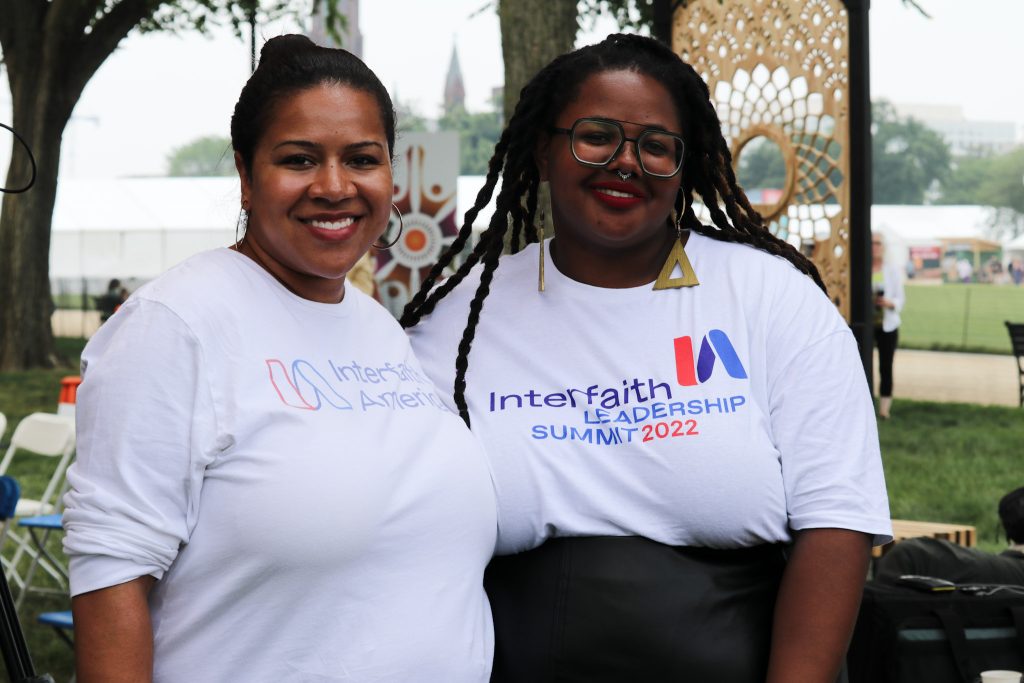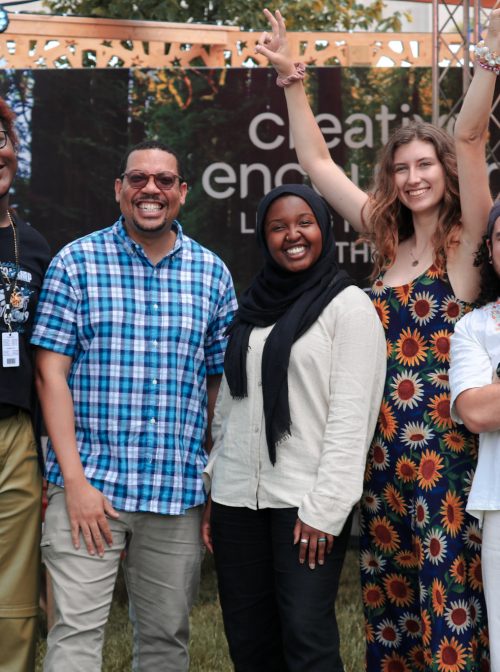The Smithsonian Folklife Festival has been a stage to celebrate America’s diverse cultures and heritage since 1967. Produced by the Smithsonian’s Center for Folklife and Cultural Heritage, the free festival returned this year to the National Mall in Washington D.C. with pop-up tents featuring food, arts, crafts, and cultural events from around the nation.
The festival is running from June 29 to July 4 and July 6 through July 9, with a special focus on exploring the history of the Ozarks and examining how America’s cultural landscape has been deeply impacted by its constantly evolving religious diversity.
“I love that different generations and different faiths are being represented,” says Sojin Kim, a curator at the Smithsonian Center for Folklife and Cultural Heritage. “I love the idea that the diversity of spirituality and belief is foundational to America. I love that [these programs] are about creative representations and expressions of faith and spirituality.”
“We wanted to be a part of the Folklife Festival because the Smithsonian Institution is the nation’s storyteller,” says Alexis Vaughan, Director of Racial Equity Initiatives at Interfaith America. “It is where we trace our histories and learn about different expressions of culture and identity. With this year’s theme of “Creative Encounters: Lived Religions in the United States,” we wanted to ensure that Interfaith America’s racial equity and bridgebuilding work was a part of bringing demonstrable balance and nuance to public understandings of religion and religion’s role in promoting restorative justice, enduring peace, and inclusive love.”
In partnership with Interfaith America, Sasa Aakil, a visual artist and 2021 Montgomery County Youth Poet Laureate, hosted an interfaith poetry jam at the festival to explore faith, spirituality, and interreligious identities. The event featured five poets: Sasa Aakil, Abdul Ali, Sophia Hall, Camilo Montoya, and Kae Osei.
The event title, ”If All the Trees Were Pens,” was inspired by a verse in the Quran:
And if all the trees on earth were pens and the ocean (were ink), with seven oceans behind it to add to its (supply) yet would not the words of Allah be exhausted (in the writing): for Allah is Exalted in Power, full of Wisdom. (Chapter 31:27)
“I use that title to speak to the power of faith and what I believe in,” says Aakil. “It’s also about imagining this world that we aspire to where all the trees are pens and everybody can create… I organized this event because I really like poetry and really love innovative spaces.”
Lizzie Franclemont, program assistant at Interfaith America, says the event aims to highlight the intersection of creative endeavors and racial equity work.

“So often we talk about racial equity in a more academic lens. And we thought that this was a fantastic way to really meet people where they’re at,” says Franclemont. “There’s something really inviting about letting people just come in and listen to storytelling from a diverse viewpoint. We hope that resonated with people.”
After the event, the five poets joined in discussion with the audience to explore the importance of faith in their lives and how it inspires their art.
The following conversation has been edited for length and clarity.
Why are interfaith spaces important?
Sasa: I think it’s important to have a collective of multiple voices because people miss things and people don’t know things because they just have their life experience. When we have a table with everyone represented at it, it becomes a force that is immensely powerful, because we can account for all the things that we do not know. And that is an important piece, and we see the common threads that unite us all.
Abdul: Regardless of what your faith practice is, there is a universality to poetry, right? Regardless of how you believe or how you pray. We all experience grief, and we look for language to fill in that gap. How do we talk about that? Poetry gives us that language.
Sophia: Because of the conversations interfaith spaces can generate. When you have people from diverse backgrounds, all together in the same room, it’s not just an echo chamber. It’s a place where ideas can bounce off of each other and evolve and counter and educate and inspire other ways of thinking.
What does faith mean to you?
Sophia: Faith means a place to turn to when I’m sad or looking for solace. One of my poetry mentors told me pain doesn’t decompose when you bury it. That’s part of the work that poetry does and what faith does for me. It’s unearthing the pain that we have buried so deep inside of us and helping process it, so it doesn’t just sit there in the ground festering hate.
Faith to me is loving, because to some people, like my grandmother, faith is a call to her to not love certain people for who they love. And I disagree with that. I think, for me, faith is loving and seeing the light in people no matter what.
Camilo: In my life, faith has been turbulence, faith has been an earthquake, and everything’s falling apart, but what’s holding the house? You know what I mean? Like, that’s been faith in my life. I like the term “faith in action.” I like that when things are not within my control, when things are genuinely beyond me, I have faith that even if I can’t see past this, even if I don’t know where this is headed, why everything is going wrong; I believe that you’re taking care of me and that you’re taking me to where I’m supposed to go not where I want to go. That’s what faith has been for me.
How does faith inspire your poetry?
Camilo: Spoken word poetry is about the delivery and it’s about the performance. It’s like my experience when I was a part of a Christian church for a while – like the whole devoting yourself to Jesus aspect of it is very physical, all the praying and hand holding, you know? So, when I’m writing about citizenship, I think to myself that I need you to be somebody devoted. It makes me think of [church] as I was performing that poem, and that’s an example of the many ways faith and the physical experience of faith has inspired my poetry.
Kae: Any spoken word artist, any slam poet, will tell you that when you get onstage and greet the crowd, it feels like a form of worship sometimes. At least, for me, it does. When you’ve put in that work, and you dive into that point where you’re like this a piece of art that I’m going to like to emote – it’s the same way as like when you’re at the altar giving praise. It’s the same kind of feeling, that same kind of pushing and pulling, it all comes back to like that same feeling inside.




